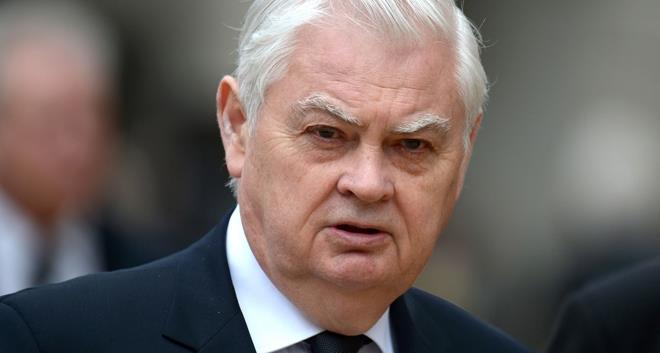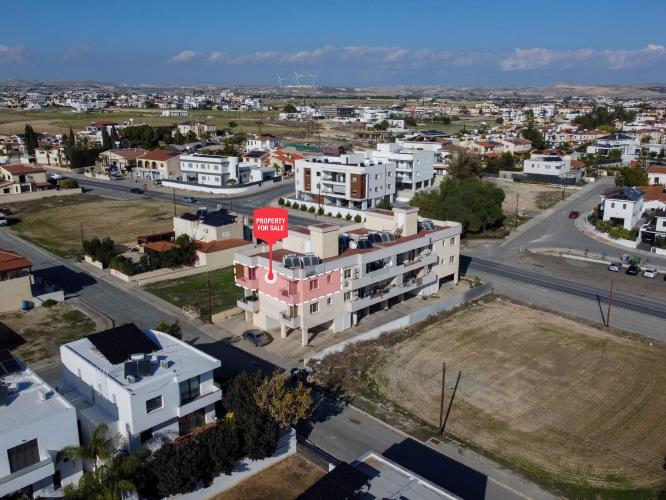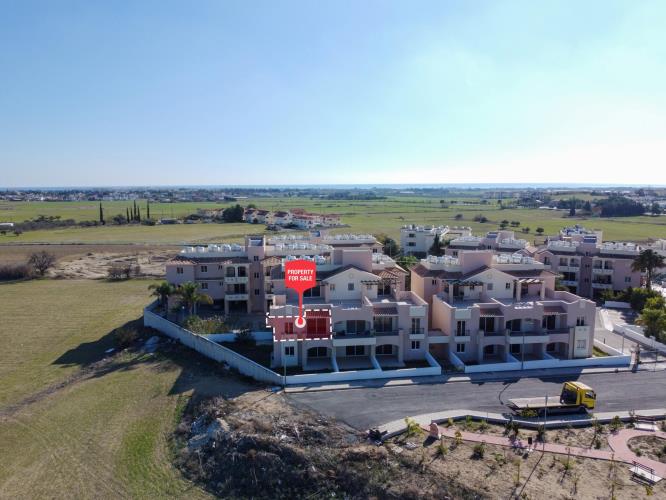Norman Lamont was Britain’s Chancellor of the Exchequer from November 1990 until May 1993, presiding over the withdrawal of sterling from the Exchange Rate Mechanism and what quickly became known as Black Wednesday. He has since been described by the economist Sir Alan Walters as “not only the most effective, but also the bravest Chancellor since the war.” In 1998 he was made a life peer, entering the House of Lords as Lord Lamont of Lerwick.
Lord Lamont, who is one of the keynote speakers at next month’s Limassol Economic Forum, spoke exclusively to Gold.
By John Vickers
Nine months ago, in what proved to be a remarkably prescient article on Greece, you wrote: “Mr Tsipras will be under pressure from people to the Left of him” and that is exactly the situation he is facing today. Do you believe that it is possible for any government to implement policies and measures that are, in reality, diametrically opposed to its basic political philosophy?
It is extremely difficult for any government to go against its basic principles for the simple reason it relies on its supporters for votes in parliament. Mr Tsipras remains a very popular politician in Greece but his party, of course, has split and we shall have to see how that works out and whether he can win support elsewhere.
In the same article, you noted that “a real debt write-off, if it was conditional on sensible policies, would help both Europe and Greece”. That still hasn’t happened, although it appears closer today. Is that the only way forward for Greece?
I still think a debt-right off is important for Greece. I don’t think it is an optimal solution to have more “extending and pretending”, i.e. a lower interest rate and a longer period for repayment but still leaving Greece with a massive amount of debt. The IMF is keen on a debt write-off. The reality is that the Greek debt will never be repaid but Germany doesn’t want to admit that.
You have been very critical of the austerity measures imposed on Greece but many observers argue that the situation today is not so much a result of those measures but of the fact that they were, in fact, not implemented. Isn’t there some truth in this?
There has been plenty of austerity on Greece. What was, perhaps, not implemented as much as it should have been concerned structural reforms to the supply side rather than austerity measures. Greece certainly needed cuts in expenditure and needed reform as well. My view was, however, was that the degree of austerity and the timing of it became, in the end, counter-productive and made the problem of indebtedness worse.
Cyprus has also undergone a so-called economic adjustment programme, the positive results of which are becoming increasingly evident but, on the negative side, it also saw the collapse of one of its two biggest banks, a bail-in of depositors and, of course, record unemployment. What is your view of how Cyprus and its economic and banking problems were dealt with in 2013?
I am not an expert – far from it – on the Cyprus situation but it seems to me that the root causes of Greece’s and Cyprus’s problems were different. Cyprus got into problems because of the connection between banks and real estate as Ireland did. In Greece, the crisis originated with the public debt and then affected the banks. The fiscal austerity imposed on Greece by the eurozone was greater than on Cyprus and the result was a milder recession than in Greece. In Cyprus, bank deposits were converted into shares of banks. Of course, businesses were hard hit, as were pension funds. Some of the measures imposed on Greece – increased taxes on shipping or corporation tax – may help Cyprus’s competitive position.
Do you agree with those who point to the country’s return to the international markets, the successful recapitalisation of the banks and successive upgrades by the rating agencies as proof that austerity is a necessary evil but one that works in the end?
Austerity for countries that have run up large stock of debt is unavoidable. However, too much up-front austerity may increase indebtedness. Once an economy has already shrunk by 25% because of austerity, more of the same may do more harm than good. I believe that ‘phased austerity’, as seen in the UK and the US, was more sensible than what happened in Greece.
You have described the euro as “a flawed concept: a currency without fiscal union, without a government, without a single flexible labour market.” There was never any likelihood of the UK ditching the pound sterling for the euro 25 years ago but are you surprised that the single currency has survived?
You say there was never any likelihood of the UK joining the euro 25 years ago but when John Major and I negotiated our “opt out” from the euro, there was a lot of criticism. Many people, including Tony Blair, advised joining. I am not surprised entirely that the single currency has survived. Firstly, history shows that currency unions last quite a long time, sometimes several decades. I have never predicted the early breakup of the euro, not least because there is enormous political capital invested in the project. The motivation is no doubt honourable, particularly the wish to banish the threat of war and conflict from the continent of Europe. Nonetheless, the idea that you could have a currency without moving towards political integration and having a European Finance Ministry is, I think, unrealistic. And a European Government, if it happens, will be in conflict with national electorates as we saw in Greece. The nation state still has a lot of life in it and we ignore that at our peril.
I think it’s fair to say that you remain best known for your time as Chancellor of the Exchequer (1990- 1993). Almost 25 years later, how do you view that period? Has hindsight forced to see your policies and actions in a more positive or negative light?
I certainly don’t want to sound complacent and I don’t deny that I have made my share of mistakes. However, the policies that I implemented were, I believe, in the circumstances I inherited, unavoidable. They were not popular but, as a result of them, the British economy was in a much a better state when I left office than when I took office. My policies created the stability and conditions for the boom of the nineties. They had a long-term, beneficial effect on the British economy but the main political beneficiaries were Tony Blair and Gordon Brown.
Although the UK business world appears united it its desire for the UK to remain within the EU, a considerable section of public opinion is very anti-Brussels. Do you think that David Cameron will be able to renegotiate the terms of Britain’s EU membership and can you envision the referendum leading to an exit from the EU?
I believe that David Cameron will be able to achieve some changes to the terms of Britain’s EU membership. The question is whether it will be sufficient to satisfy British public opinion. Personally, I think the EU is in need of big reform. Certain powers should be repatriated. I am sceptical about the sacrosanct nature of the freedom of movement principle. Personally, what I would like to see is a looser, less integrationist EU. We need some overarching organisation for the European continent but it should not be as intrusive as the one we have today. Whatever the result of the EU referendum, I doubt if it will settle the question of Britain and the EU forever. Britain has a different view of Europe from other countries.
Although you are a Member of the House of Lords, do you ever miss the intensity of the Commons or are you happy to leave that to a younger generation of politicians?
You are right. I do sometimes miss the cut and thrust of the House of Commons. The House of Lords is a very calm assembly and has a large number of people who are very experienced and very expert in their subjects. Sometimes it can appear a little over-polite. Occasionally I miss the noise – and even the rudeness – of the House of Commons!
What can those attending the Limassol Economic Forum in October expect to hear from you?
Well, everything is changing so quickly that it is difficult to know how things will look in a month’s time. I will say something about the questions you have asked me – about the future of the eurozone and Britain’s relationship with it and the EU. I also expect to update my views on the world economy following the setback to the Chinese economy.
About Lord Lamont of Lerwick
Lord Lamont was a Conservative MP for 25 years. A supporter of Margaret Thatcher, he rose through the ministerial ranks, becoming a Minister in the Departments of Energy, Industry, Defence and the Treasury. He was Chief Secretary in Mrs Thatcher’s Cabinet. When John Major became Prime Minister, he became Chancellor of the Exchequer. It was a difficult period with a recession and the need for austerity measures to reduce the budget deficit. Sir Alan Walters, Mrs Thatcher’s economics adviser, described him as “not only the most effective but also the bravest Chancellor since the War”. While Chancellor, he recruited the future Prime Minister, David Cameron, to be his special adviser.
He was Britain’s chief negotiator for the Maastricht Treaty and was responsible for negotiating Britain’s opt-out from the euro. He was Chairman of the EU Finance Ministers in 1992 and Chairman of The G7 Group of Finance Ministers in 1991.
He worked closely with Russian Presidents Gorbachev and Yeltsin on economic reform and privatisation.
He has published two books: In Office, about his time as Chancellor and Sovereign Britain, about Britain’s relationship with the EU.
















